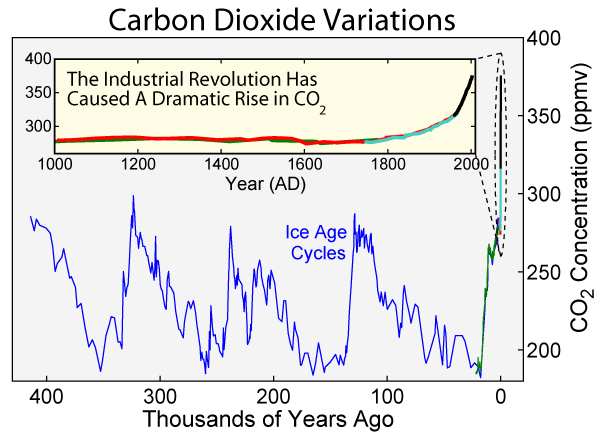Waiting With Us
Having celebrated Ascension last Thursday, the Diocese of Erie celebrates a Sunday solemnity today
7Easter (12 May 2013)
Homily of Fr. Paul Panaretos, S.J.
I received these words in my mail:
“Perhaps it is just a kink peculiar to elderly bachelors,
but I find myself musing often about the erotic.”1
You may find those words interesting, odd, or even symptomatic of something troublesome. Let’s worry about them together.
“Perhaps it is just a kink peculiar to elderly bachelors,
but I find myself musing often about the erotic.”
 Wait before you decide. It may help to know a few facts: those words came from a friend; who happens to have been one of my teachers; who was a monk until his death!
Wait before you decide. It may help to know a few facts: those words came from a friend; who happens to have been one of my teachers; who was a monk until his death!
An erotic monk? Would you care to know more? I thought so. That’s the point with the erotic, it makes us thirst for more. Unfortunately, the world of the erotic gets bad press overall, and self-giving Christians, in particular, are suspicious of it. That is too bad, overall; and very unfortunate, in particular for us.
It is very unfortunate because Eros is not just sex; nor is it only about sex. Eros is about the beautiful. The doorway to the beautiful is the imagination. Eros is about imagination. The voice of the erotic imagination muses delicately in its play about one’s lover. The 17th–century poet, Robert Herrick, delicately and erotically mused about his lover this way:
Whenas in silks my Julia goes
Then, then methinks how sweetly flows
the liquefaction of her clothes.2 —Delicious, isn’t it?
“Then, then” such charming delights are not limited to poets. Throughout my life and before it my parents had voiced their delicate musings about one another to one another. I heard: “my sweet”; “my dearest”; “love of my life”; and this one I love: “my heart.” Each melted my heart when I heard it. They kept a–melting theirs, melding them into one. Because two my parents were not for 60 years.
This erotic voice is not limited to parents or poets. It registers in ways our ears cannot hear but the church has heard with its heart and eyes. It is delicate and strong. It speaks of the beautiful, of loves lost and found. In that register we, too, see the heavens opened and catch glimpses of God’s radiance. God’s radiance refreshes us, washes us and renews us in the Lover of us all we eagerly await: Come, Lord Jesus!
As we tarry in this erotic, eucharistic, expectant mood, let’s indulge in a particularly loving thought: God waits, too. In our Risen Jesus God waits with us. How else could Stephen cry, Jesus, receive my spirit? Or the Psalmist sing all people beheld [God’s] glory? Jesus desired God whom we await: Father, I desire that [my disciples]...whom you have given me, may be with me where I am, to behold my glory which you have given me in your love for me before the foundation of the world. That is Eros speaking. Jesus’ desire promises God waits. Jesus embodied divine waiting by attending the harassed and helpless, curing every disease, announcing heaven has come near, succumbing to death then rising to tell us: I am coming soon.
 In this erotic mood we may say Risen Jesus and church are lovers holding close each other in life and death and resurrection. That is nothing new. Instead I put it in a new light: the light of Eros which is the beautiful; the light of the beautiful which inspires; the inspiring light of the Easter mystery. In its light we behold God waiting for us, not only thirsty for the gift of life-giving water but sharing every measure of it with others. Jesus let us see this by thirsting as well as being Life-Giving Spring; by calling disciples as well as being Companion; by cherishing God as well as being Lover of all.
In this erotic mood we may say Risen Jesus and church are lovers holding close each other in life and death and resurrection. That is nothing new. Instead I put it in a new light: the light of Eros which is the beautiful; the light of the beautiful which inspires; the inspiring light of the Easter mystery. In its light we behold God waiting for us, not only thirsty for the gift of life-giving water but sharing every measure of it with others. Jesus let us see this by thirsting as well as being Life-Giving Spring; by calling disciples as well as being Companion; by cherishing God as well as being Lover of all.
Jesus shares his Spirit with us so we may embody Jesus our Lover by holding up his body: youthful and old; frightened and calm; graceful and cold; rich and poor; healthy and ill; at work, at prayer, at play—forgiven or not. Christian compassion is erotic in this real sense. Its tenderness, vision and imagination are never idle. They are the contours of our mission, they are who we are, and delightfully, they are who God is in Christ Jesus through their Spirit. He is come yet again to dine with us.
In your daily 15 minutes with Jesus this week
- Pause and rest in our triune God.
- Ask the Apostles and St. Stephen to present you to Jesus.
- Chat with him: praise Jesus for dying and rising for you; thank him for giving you a share in his Spirit.
- Ask Jesus for grace to surrender to his Spirit, who empowers you to imagine and reason with the mind of Jesus daily.
- Close saying slowly the Lord’s Prayer. His words guide us to live his Spirit with others and for our world.
____________
- Aidan Kavanagh, OSB, “Opinion: Beware the ‘Bottom Line,’” Reflections, Summer-Fall 1993 (The Divinity School, Yale University) 28.
- “Upon Julia’s Clothes,” Hesperides, p. 41. Aidan Kavanagh reminded me of these verses when his essay arrived in my mail ten years ago. I first heard them as a child from my poetic Grandmother.
________________________________________________________________
 In 1943 Poles fled Soviet labor camps. To meet their needs Catholics began to collect money. With that concern and collection was born the Catholic Relief Services. Its current chair, Bishop Gerald Kicanis, conversed with Philippa Hitchen at Vatican Radio.
In 1943 Poles fled Soviet labor camps. To meet their needs Catholics began to collect money. With that concern and collection was born the Catholic Relief Services. Its current chair, Bishop Gerald Kicanis, conversed with Philippa Hitchen at Vatican Radio.









_(7035968021).jpg/128px-Le_parc_de_la_Favara_(Palerme)_(7035968021).jpg)
.jpg/320px-Gospel_of_Luke_Chapter_24-20_(Bible_Illustrations_by_Sweet_Media).jpg)


_as_bioluminescent_organisms_and_a.jpg/128px-US_Navy_110202-N-7981E-805_A_Sailor_stands_watch_on_the_fantail_of_the_aircraft_carrier_USS_Carl_Vinson_(CVN_70)_as_bioluminescent_organisms_and_a.jpg)


